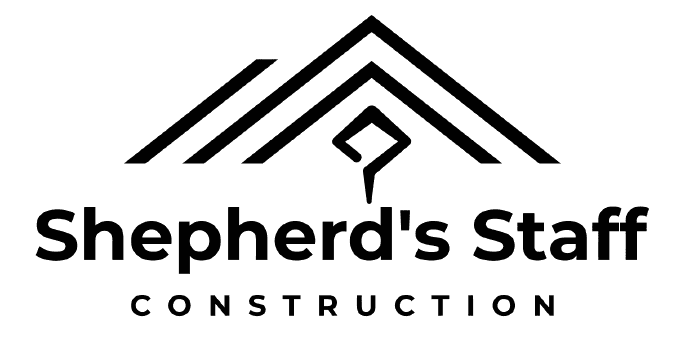
Jan 12, 2022
Unlock the Secrets to a Perfect Home Remodel in Colorado!
Introduction
So, you've decided to embark on a home remodeling journey in Colorado. Maybe it's a kitchen revamp, a basement makeover, or an entire home renovation. Regardless of the project's scope, working with a construction contractor can make or break the experience. As a professional remodeling expert, I've seen the good, the bad, and the ugly. Let's dive into what it's like to work with a contractor in the Centennial State and ensure your project is a success.
Understanding the Role of a Construction Contractor
What Does a Contractor Do?
A construction contractor is your project manager, problem solver, and go-to person for everything related to your remodel. They coordinate all the moving parts, from securing permits to managing subcontractors. Think of them as the captain of your remodeling ship, steering it toward completion while navigating any rough seas along the way.
Types of Contractors
General Contractors: Oversee the entire project and hire subcontractors for specialized tasks.
Subcontractors: Focus on specific aspects like plumbing, electrical work, or painting.
Specialized Contractors: Experts in one field, such as plumbers or electricians.
Hiring the right type of contractor for your project is crucial. Make sure they are licensed and insured to protect yourself from any potential mishaps.
Initial Planning and Consultation
Assessing Your Needs
Before you even start looking for a contractor, take some time to assess your remodeling needs and goals. What do you want to achieve with this project? Make a list of must-haves and nice-to-haves. This will help you communicate your vision clearly during the consultation.
Researching and Selecting a Contractor
Finding the right contractor can feel overwhelming. Start by asking friends and neighbors for recommendations. Online reviews and local home improvement forums can also be goldmines of information. When you've narrowed down your list, schedule consultations to meet potential contractors in person.
The Consultation Process
During the consultation, be prepared to discuss your project in detail. Share your goals, budget, and any specific concerns you have. A good contractor will listen carefully, ask questions, and offer insights based on their experience. Clear communication is key to setting expectations and avoiding misunderstandings down the road.
Budgeting and Financing
Creating a Realistic Budget
Estimating the cost of your remodel can be tricky. A good rule of thumb is to get multiple quotes and compare them. Be wary of estimates that seem too good to be true—they often are. Make sure your budget includes a contingency fund for unexpected expenses. Trust me, surprises are almost inevitable in any remodeling project.
Understanding Quotes and Bids
Quotes and bids can vary widely. Some contractors provide detailed, itemized quotes, while others might give you a lump sum. Ask for a breakdown of work items to understand where your money is going. This transparency helps you make informed decisions and avoid any hidden fees.
Beware of the contractor that creates a low bid and is not thorough or detailed! I have seen it countless times where a contractor will throw out a number that sounds great to the homeowner. They sign a contract and away the project goes! The contractor eventually hits a "snag" and invents excuses to add huge change orders which add giant costs to the homeowner! These fees always cost far more than is truthful, and overall the project costs more and is lower quality than that of an integrous contractor who had a higher and more detailed bid in the beginning. Don't fall for this kind of trap! Get a contractor that is thorough and knowledgeable and integrous!
Financing Options
Home remodeling can be expensive, but there are various financing options available. Home equity loans, personal loans, and financing plans offered by contractors are all worth considering. Evaluate the interest rates, terms, and repayment options to choose the best fit for your financial situation.
Contract and Documentation
Essential Elements of a Contract
A well-drafted contract is your best friend in a remodeling project. It should include:
Detailed project scope
Timeline and milestones
Payment schedule
Change order procedures
Warranty information
A clear, comprehensive contract protects both you and the contractor, ensuring everyone is on the same page.
Permits and Regulations
In Colorado, certain remodeling projects require permits. Your contractor should handle the permitting process, but it's good to be informed. Permits ensure that the work meets local building codes and safety standards. Skipping this step can lead to fines and complications when you sell your home.
The Construction Process
Pre-Construction Planning
Before the hammering begins, there's a lot of groundwork to be done. This includes site preparation, ordering materials, and scheduling subcontractors. Your contractor will coordinate these tasks, but it's important to stay involved and informed.
Day-to-Day Interactions
Once construction starts, expect daily interactions with your contractor. Regular updates and progress meetings are crucial to keeping the project on track. Don't hesitate to ask questions or raise concerns. A good contractor values your input and will address any issues promptly.
Handling Unexpected Issues
No matter how well you plan, unexpected issues can arise. From discovering hidden mold to delays in material delivery, these hiccups can be stressful. Keep calm and trust your contractor to handle these challenges. Flexibility and a positive attitude go a long way in navigating the ups and downs of remodeling.
Quality Control and Inspections
Ensuring Quality Workmanship
Quality control is an ongoing process throughout your remodel. Regular inspections and site visits help ensure that the work meets your standards. Pay attention to the details, from the finish on your cabinets to the alignment of tiles.
The Role of Inspections
Inspections are critical to ensure the work complies with building codes and regulations. Your contractor will schedule these inspections at various stages of the project. If any deficiencies are found, address them promptly to avoid delays.
Final Walk-Through and Project Completion
As the project nears completion, conduct a final walk-through with your contractor. Create a punch list of any remaining tasks or touch-ups needed. This ensures that everything is finished to your satisfaction before you make the final payment.
Post-Construction: Moving Back In
Cleaning and Preparation
After the construction dust settles, your home may need a thorough cleaning. Some contractors include this in their services, while others may not. Make sure your home is spotless and ready for you to move back in comfortably.
Warranties and Guarantees
Most contractors offer warranties on their work. Understand what is covered and for how long. Keep all warranty documents in a safe place for future reference. This gives you peace of mind knowing that any post-construction issues will be addressed.
Conclusion
Embarking on a remodeling project in Colorado can be an exciting yet daunting experience. By understanding the process and working closely with a reliable contractor, you can achieve your dream home. Remember to plan carefully, budget wisely, and maintain open communication throughout the project.
Ready to Start Your Remodeling Journey?
Contact us for expert advice and a free consultation. Let's turn your vision into reality and create a home you'll love for years to come. For more resources and tips on home improvement, check out our website and follow us on social media. Happy remodeling!

